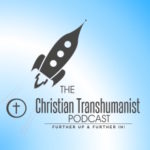We run our website the way we wished the whole internet worked: we provide high quality original content with no ads. We are funded solely by your direct support. Please consider supporting this project.
Molinism and Open Theism – Part II
In the previous post on this topic I briefly outlined Molinism and then discussed “the grounding objection.” In this post I’ll first discuss another fundamental objection to Molinism and then discuss how it is overcome by the Open View of the Future. In the process it will be clear how the Open View differs from Molinism.
The Great Omission
I will label the objection I’m about to raise “the great omission,” for my claim is that Molinists have inadvertently omitted from their consideration an entire category of truths that an omniscient God must know.
I grant the Molinist’s claim that God, being omniscient, must know the truth value of all meaningful propositions. And I grant that this means God eternally knows what will be true, insofar as the future is settled, and even what would be true in other circumstances, insofar as this is settled from all eternity. What Molinists systematically overlooked, however, is that, if God knows the truth value of propositions about what will come to pass, he must, by logically necessity, also know the truth value of propositions of what might and might not come to pass. Reflecting a bias toward determinism that has characterized the entire Christian tradition since Augustine, Molinists simply overlooked this category of propositions that God must know.
WARNING: this is about to get a little technical, at least for those readers who have not been trained in philosophy. Nevertheless, I encourage you to work through this slowly, even if you find it a bit difficult. I think you’ll find it worth the effort.
Let me explain why God must know the truth value of what might and might not come to pass. On what’s known as the standard Aristotelian “Square of Opposition” the contradictory of “X will do y” is not, “X will not do y,” which is what Molinists have always mistakenly assumed. The contradictory of “X will do y” is rather “X might and might not do y.” (If you want to go deeper, click here.)
It’s really not hard to see if you think about it concretely. For example, suppose my lovely wife Shelley says, “Greg will certainly eat chocolate on May 16th.” If you want to contradict her, you shouldn’t say, “Greg will certainly not eat chocolate on May 6th.” (That is known as a contrary, not a contradictory, statement). You would rather say, “It’s not the case that Greg will certainly eat chocolate on May 16th,” which is logically equivalent to saying, “ “Greg might not eat chocolate on May 16th (which yet implies that I might eat it).”
So, if it’s true that, “Greg might and might not eat chocolate on May 16th,” then it’s false that “Greg certainly will eat chocolate on May 16th” and that “Greg certainly will not eat chocolate.” The negation of a certainty, in other words, is not a contrary certainty, but the introduction of the possibility of it being otherwise. It is false that “Greg will certainly eat chocolate on May 16th” if there is any possibility that “Greg might not” eat this treat. Get it?
Now, it’s a fundamental law of logic that if you know the truth value of any proposition, you thereby know the truth value of its contradictory. So, as I said above, if God knows the truth value of all “will” and “will not” propositions (as well as all “would” and “would not” propositions, which are simply “will” and “will not” propositions placed in a conditional subjective mode), then God must, by logical necessity, know the truth value of all “might and might not statements.” Yet, we never find Molinists (or any other group of Christian thinkers in the Church tradition until recently) considering this category of propositions.
The Open View of the Future
Now, this of course doesn’t prove that our actual future is open (viz. expressed by true might and might not propositions). God could have created a world in which all “might and might not” statements are rendered false simply by creating a world that was defined exclusively by true propositions about what “will” and “will not” come to pass. But I think I’ve proven that it’s at least logically possible for God to create a world in which some “might and might not” propositions held true. So the matter of whether God created a cosmos with a partially open or an exhaustively settled future must be settled on other grounds.
It also proves that the claim that some “might and might not” propositions are true does not in any way qualify God’s omniscience. To the contrary, I would rather argue that those thinkers who assume God must know the future as an exhaustively settled reality and who thus deny the possibility that God can know the truth value of “might and might not” propositions are inadvertently restricting God’s omniscience!
The distinct claim of Open Theism is that we have biblical, experiential and philosophical reasons for believing that God did in fact create a world in which some “might and might not” propositions are true. Which is to say, he created a world in which the future is partially open, comprised of possibilities rather than settled facts. And God did this, in our view, precisely because he didn’t want to unilaterally determine all that comes to pass. (How boring that would be for God!) God rather wanted to populate this cosmos with free agents, thereby creating the possibility of genuine love, adventure, and yes, the risk of sin and evil.
To be sure, in our view, God pre-settled the future as much as he wisely determined it should be settled. And to this degree, relevant propositions regarding what will and will not come pass are rendered true, and relevant propositions regarding what might and might not come to pass are rendered false. But to the degree that the Creator wisely and adventurously left the future open, relevant propositions regarding what might and might not come to pass are rendered true while relevant propositions regarding what will and will not come to pass are rendered false. And as history unfolds and agents make free choices, the propositions expressing what agents might and might not do gradually transition over to become propositions expressing what these agents will do (when God sees it’s certain they will do them) and then, when they are in the past, to propositions expressing what these agents have done.
If you’re interested in going deeper into this, you might want to check out :
* Greg Boyd, Satan and the Problem of Evil (IVP).
* ——— “Neo-Molinism and the Infinite Intelligence of God,” Philosophy Christi, V/1 (2003)
* P.Eddy, J. Bielby, Divine Foreknowledge: Four Views (IVP).
* A. Rhoda, G. Boyd, T. Belt, “The Nature of the
Future,” https://reknew.org/2008/01/open-theism-and-the-nature-of-the-future/
* G. Boyd, TA. Rhoda, T. Belt, “The Hexagon of Opposition.” https://reknew.org/2008/01/the-hexagon-essay/
* G. Boyd, “Two Ancient Motivations for Ascribing Exhaustive Definite Foreknowledge to God.” https://reknew.org/wp-content/uploads/2009/11/two-motivations.pdf
Category: Q&A
Tags: Determinism, Molinism, Open Theism, The Great Omission
Topics: Open Theism What it is and is not, Providence, Predestination and Free Will
Related Reading

How do you respond to Mark 14:13–15?
In planning for the Passover meal, Jesus tells his disciples, “Go into the city and a man carrying a jar of water will meet you; follow him, and wherever he enters, say to the owner of the house, ‘The Teacher asks, Where is my guest room where I may eat the Passover with my disciples?’…

What is the significance of Numbers 14:12–20?
In response to Israel’s bickering the Lord says “I will strike them with pestilence and disinherit them, and I will make of you [Moses] a nation greater and mightier than they” (vs. 12). Moses asks the Lord to forgive the people, and the Lord eventually responds, “I do forgive, just as you have asked” (vs.…

Romans 8:28: What Does It Mean?
The Bible is very clear that God has nothing to do with evil. There is “no darkness” in God. (I Jn 1:5). Far from intentionally bringing about evil, God’s “eyes are too pure to look on evil” (Heb. 1:13). All evil, therefore, must be ultimately traced back to decisions made by free agents other than…

Greg’s Interview on The Christian Transhumanist Podcast
Here is an interview I did for The Christian Transhumanist Podcast that I wanted to share with all of you. Micah Redding and I discuss everything from Relativity Theory to Politics. I think you’ll find it interesting, but I want to offer a word of clarification before you listen. At one point in this interview…

How do you respond to Jeremiah 1:5
The Lord says to Jeremiah, “Before I formed you in the womb I knew you, and before you were born I consecrated you; I appointed you a prophet to the nations.” This verse shows God’s love and plan for Jeremiah before he was born. This does not imply that Jeremiah could not have “rejected God’s…

Isn’t Open Theism outside of historic orthodoxy?
The Church has never used one’s view of divine foreknowledge as a test for orthodoxy. And while the open view has always been a very minor perspective, it has had its defenders throughout Church history and it has never been called “heresy” (until in mid 1990s when some started using this label). According to some…

